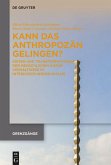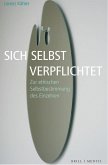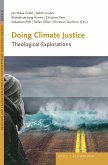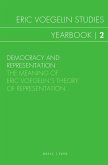Recent aspirations towards the technical perfection of humanity and nature call for a new type of ethics. The overcoming of all human weakness is often viewed as a personal right as well as a common good. But fully overcoming human weakness would undermine the basis for mutual support and recognition. The achievement of complete technical independence from natural forces would end the embeddedness of humanity within natural history. This book defends the necessity of ethical assessment against the automatism of relying on technical developments or market processes. To identify both the values and ethical limits of technology development, criteria for the goodness of human life, and for nature in general, are required. This includes a meta-ethical discussion of moral objectivity, philosophical anthropology, and moral history. On the basis of that discussion, conclusions are drawn about ethical debates in the domains of medicine, biotechnology, and information technology.
Bitte wählen Sie Ihr Anliegen aus.
Rechnungen
Retourenschein anfordern
Bestellstatus
Storno








